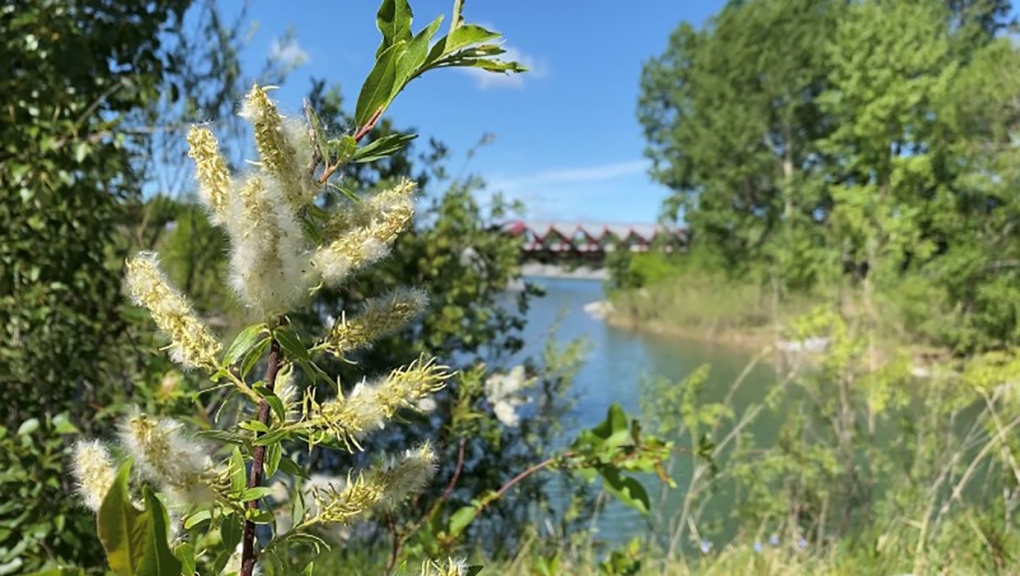
As the snow melts on the ground, allergy season is beginning in Alberta.
Parts of Canada are seeing soaring levels of pollen, but according to one allergist and professor of medicine, it’s too early to tell how bad it will be in Alberta.
“Allergy season in Alberta usually starts as soon as the snow melts because of the moulds that accumulate under the snow,” Dr. Harissios Vliagoftis of the University of Alberta told CTV News Edmonton on Monday.
“We did not have as much snow during the year, so it’s tough to tell if it will be worse.”
Vliagoftis says a warmer winter could cause plants to start producing pollen earlier in the year, which could cause issues for some people who suffer from allergies, ranging from mild to severe.
“Symptoms of allergies can affect our noses, a stuffy nose, runny nose, a lot of nasal secretions can affect your lungs,” Vliagoftis said.
“Some people who don’t have asthma will have symptoms of asthma during the spring or around other allergens that could also affect our skin or other organs.”
Pharmacist Will Leung says treatments vary depending on the symptoms.
“If they’re having itchy eyes, for example, and that’s the only symptom, you can give them eye drops,” he said.
“If their general symptoms are a runny nose, sneezy and so forth, then you would choose a nasal spray.”
He suggests allergy patients check in with a doctor or pharmacist to find the product that works best for them.
Vliagoftis says there are a lot of factors in spring that can impact the severity of allergy season.
“We have to see how humidity and heat (and) the temperature will go on over the next month to couple months to see if it will get worse or not.”
“A very wet spring, very hot spring can increase [allergy triggers] a lot, and we have to wait and see what happens.”
He added spring pollen typically tends to stick around until June or early July, and then there’s a break before another allergy season starts again in the fall.
“When the leaves start falling, and there are rotting leaves on the ground, and then we have again, a lot of moulds.”